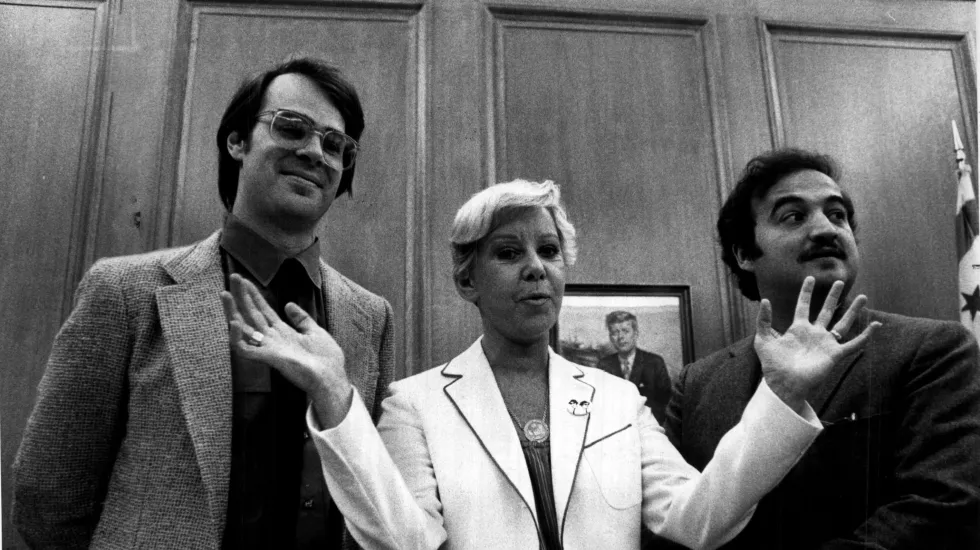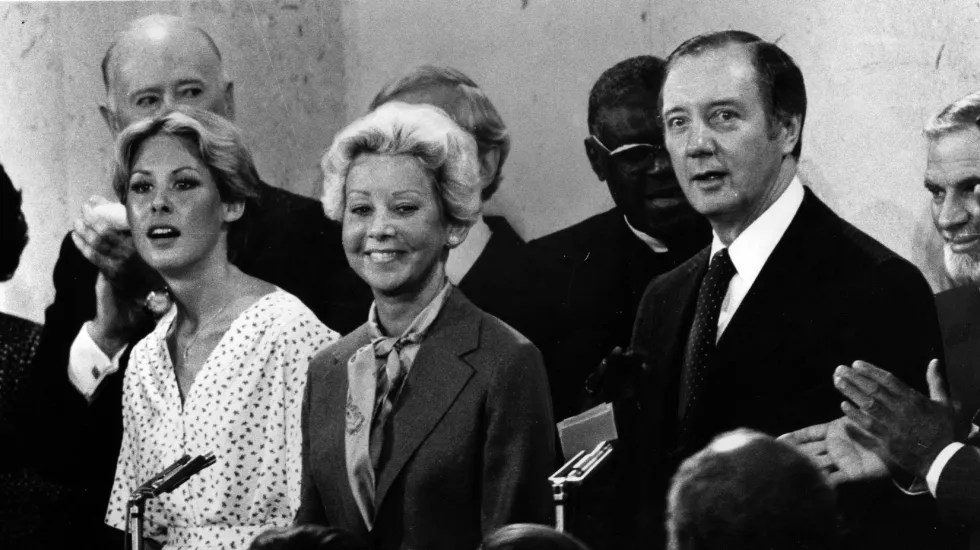
This Saturday it will be exactly three years since Lori Lightfoot crushed the once formidable Cook County Board President Toni Preckwinkle and was elected mayor of Chicago by an almost 3-to-1 margin, taking all 50 wards.
A post-mortem would be premature, as Lightfoot’s still got a year to go. Maybe she’ll manage to pull the ripcord before hitting the canyon floor. I’m rooting for her.
Yet it’s safe to say that, despite the singular role race plays in Lightfoot’s rhetoric, as a 1,001-uses solvent to be sprayed in all directions, trying to squeeze out of whatever jam she finds herself in, few critics compare Chicago’s second Black mayor to the first, the ebullient Harold Washington, who faced fierce opposition with very few Lightfootian cries of “poor me.”
Opinion
The mayor who seems most relevant to Lightfoot, alas, is Jane Byrne. Like Lightfoot, Byrne was female. Like Lightfoot, being mayor of Chicago is the only elective office Byrne ever held. And as to whether Lightfoot will also serve a single term and be shown the door in favor of someone who can actually do the job, time will tell.
Until then, WTTW is debuting an hour documentary Friday, “Jane Byrne,” kicking off the new season of its Chicago Stories series. It’s a solid introduction to Byrne for those who might be unfamiliar. Even those well-schooled in her story — I read her fine autobiography, “My Chicago” and wrote her obituary for the Sun-Times — will find new nuggets they hadn’t known before.
In 1960, Byrne was a young military widow. Her husband, a Marine pilot, had crashed approaching what was then the Glenview Naval Air Station. Plunging into campaign work for fellow Catholic John F. Kennedy, Byrne came to the attention of Mayor Richard J. Daley, who found her a role in his administration.
Her presence was supposed to be a sign of mid-1960s progressivism. The trouble with Janie Byrnes — as Daley called her — was that she didn’t resign herself to being window dressing, proudly displayed in her sinecure as the commissioner of sales, weights and measures.
Instead, Byrne took her job seriously.
“She wasn’t content to be a token, and she didn’t plan to be a failure,” said news icon Carol Marin, who along with political guru David Axelrod — both reporters during the Byrne era — provide clear-eyed, lively commentary.
Daley died in December 1976. Ald. Wilson Frost, as President Pro Tem of the City Council, was next in line to be mayor. But Frost was Black, and was pushed aside in favor of a bland, malleable, pale placeholder.
“Michael Bilandic was the most unlikely politician ever,” says Axelrod. “He really was like the bookkeeper in a Dickens novel.”
Byrne went after Bilandic for greasing a 12% cab fare increase. He fired her, setting in motion her campaign to replace him. The irony is, while Byrne definitely suffered withering sexism, she also benefited from the quality that supposedly held her back.
“People paid attention to her,” said her daughter, Kathy. “I think if she had been John Byrne, commissioner of weights and measures, it wouldn’t have been that big a story.”

What resonated for me was how the problems Byrne faced are the same problems facing Chicago today: education, race, labor, poverty. During the campaign, her adviser Don Rose declared: “The city still does not work for any kid in public school. It doesn’t work for black people, by and large, it doesn’t work for Latino people, it doesn’t work for poor people.”
Has that changed? The city is certainly in the same financial hole, grasping at the same will-o-wisps.
“She said, ‘don’t worry we’ll solve it,” Byrne’s budget director recalled. “‘We’ll have a casino.’”
Lightfoot shows up in the documentary to sound her tuning fork wisdom.
“Women, people of color, are held to a different standard,” she says.
Which is really a plea not to be held to any standard at all. Byrne was belittled for being a woman, but she failed because she was inept — or, as Harold Washington put it, “She’s abrasive, injudicious, unthinking, intemperate.”
There were three major strikes her first months in office — city transit workers, public school teachers and firefighters. (In everything-old-is-new-again style, technicians at WTTW are on strike right now.)
Given that our nation is poised to rip up Roe and stride boldly back into the pink-and-blue past, this documentary is a sobering reminder just where we’re going. Byrne appears on a clip (with a baby-faced young Oprah) and is grilled by some troglodyte who wonders if she wouldn’t rather be making her husband breakfast than running the city of Chicago.
“There isn’t a woman ever born that can’t get up in the morning, put the heat on the stove, fry some bacon, do some eggs, and then go to work,” Byrne replies, neatly setting out the future for a burgeoning percentage of women. At least for now.
“Jane Byrne” kicks off the new season of “Chicago Stories” on WTTW Channel 11 at 8 p.m. Friday, April 1, and streaming on wttw.com.







